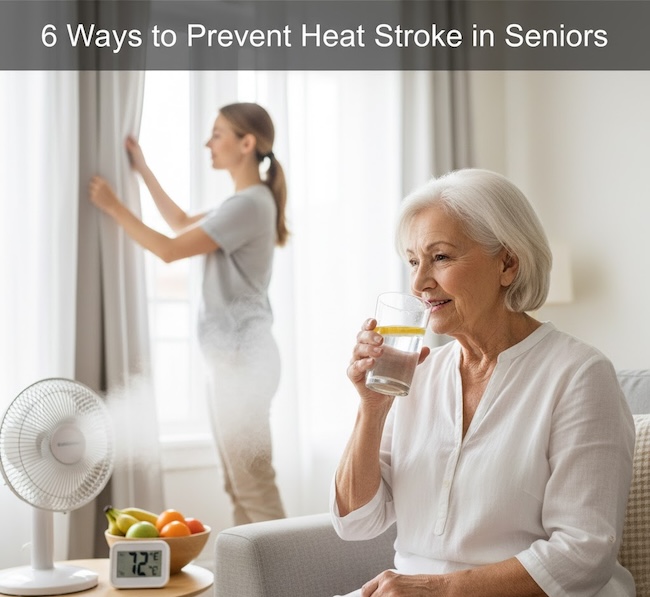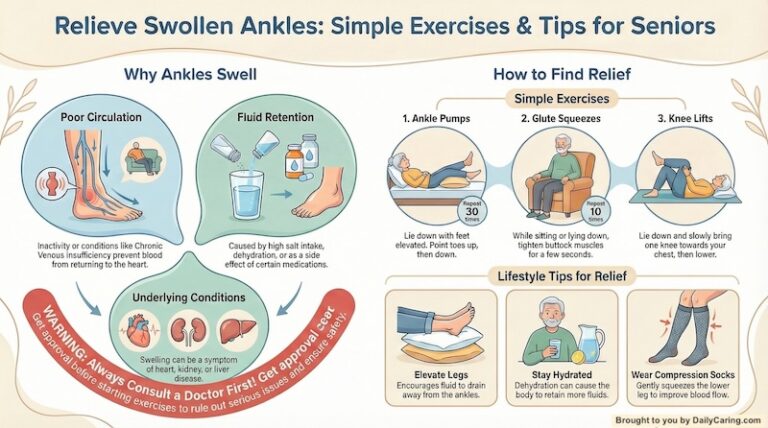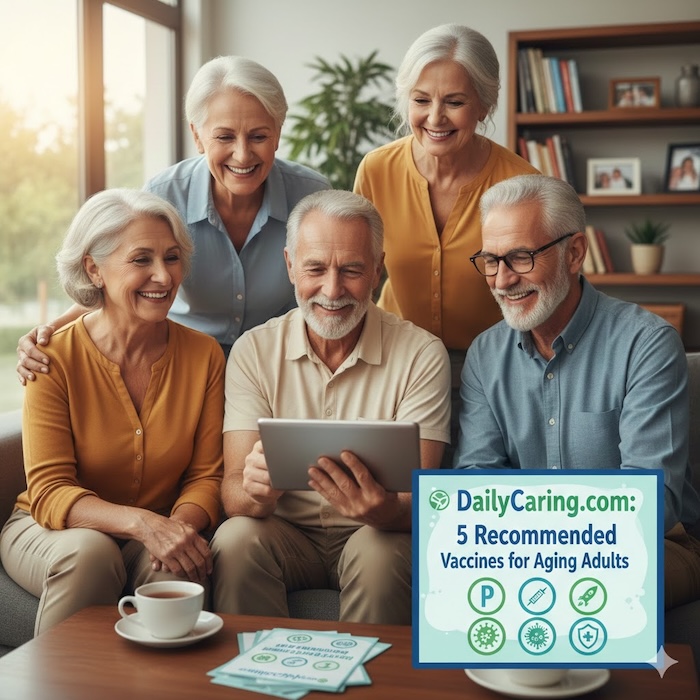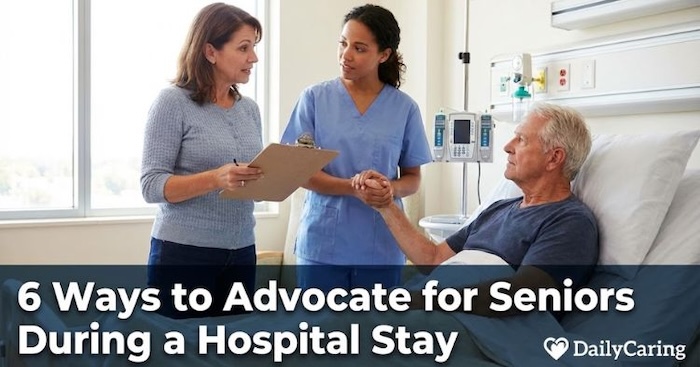When a heatwave strikes, most of us feel uncomfortable, but for an older adult, it can be a life-or-death situation. An older adult's body is not equipped to handle extreme heat as well as it used to. The ability to sweat and regulate temperature is diminished, and chronic health conditions or medications can turn a hot day into a medical crisis.

Heat stroke is a medical emergency, but the most crucial fact to remember is that it is almost always preventable. You have the power to create a safe environment for your loved one. Here are six critical, proactive steps you can take to shield them from the heat and keep them safe and healthy all summer long.
Heat Stroke in Aging Adults Can Be Deadly
In hot weather, heat stroke is a serious risk for seniors.
Older bodies are less sensitive to temperature changes and can’t adjust as well. So, seniors might not even notice that they’re overheating – until they become ill.
Chronic health conditions and common medications, like beta blockers for high blood pressure, also make it harder for the body to respond to heat.
We explain what heat stroke is and share six tips to prevent your older adult from overheating.
What is heat stroke?
Heat stroke happens when the body overheats, typically to 104 degrees Fahrenheit or higher.
It’s a serious condition and requires immediate emergency treatment.
If it’s not treated, heat stroke can damage the brain, heart, kidneys, and muscles. Plus, the longer it takes to get treatment, the higher the risk for serious complications or death.
6 Ways to Prevent Heat Stroke in Seniors
1. Understand your older adult’s health conditions
- Check with their doctor to see if medications or treatments, such as diuretics or low-salt diets, could affect how their bodies regulate temperature.
- Ask whether there are any special steps you should take if you see signs of heat stroke. For example, common remedies like sports drinks or excessive water intake could be harmful to some seniors.
2. Identify heat stroke symptoms for fast treatment
- Print this one-page handout from the Arizona Department of Health Services so you’ll know how to spot the signs of heat stroke.
- If your older adult shows signs of overheating, use the handout to evaluate symptoms and respond immediately.
- If they are overheating, call 911 or their doctor to get professional medical attention as soon as possible. In the meantime, try cooling them down using the listed treatment methods.
3. Encourage Water Intake and Dress for the Weather
- Remind your older adult to drink water throughout the day. A hydrated body feels cooler and regulates temperature better. But avoid water that’s too cold, it could cause cramps.
- Convince them to wear as little clothing as possible and make clothes as light, loose, and breathable as possible. If they feel chilly, give them a bath towel to use as a light lap blanket.
4. How to Stay Cool in the Home
- Keep the house as cool as possible by using inexpensive Mylar sheets as DIY reflective solar curtains to block out the sun and heat.
- Since heat rises, stay on the ground floor or in the basement. It’s best to avoid the hotter, stuffier upper floors.
- Buy an indoor air conditioning unit, or contact a local or chain store like Rent-A-Center to see if you can rent one.
5. How to Stay Cool Outside the House
If the house is too hot, you may need to take your older adult somewhere else to keep them cool and comfortable.
Senior-friendly places to find air conditioning
- A relative or friend’s house
- A shopping mall or stores
- A public library
- A senior center or city recreation center
- A coffee shop or restaurant
6. Use Caution With Electric Fans
- Electric fans can trick the body into thinking it’s cooler than it actually is, but don’t protect people from heat-related illnesses once the temperature reaches the high 90s.
- The CDC recommends using electric fans only when the temperature is below the high 90s. Once the temperature reaches the 90s, it's better to take a cool shower or bath or use an air conditioner to cool down.
Final Thoughts About Head Stroke in Seniors
Vigilance is your most powerful tool in the summer heat. By making these six strategies part of your daily routine, you're not just offering comfort—you are actively building a protective barrier against a serious health threat. Remember, it's far more effective and less stressful to prevent heat-related illness than to treat it. Your awareness and proactive care are what stand between your loved one and a medical emergency. So keep the water handy, prioritize the coolest parts of the day, and never hesitate to take action if you suspect overheating. Your diligent care is their best defense for a safe and enjoyable season.
Next Steps: Get 10 practical ways to help seniors stay cool
Recommended for you:
- 10 Common Chronic Diseases in Seniors: How to Prevent and Manage
- Why Seniors Need a Health Advocate: 7 Health Benefits
- Constipation in Seniors: 6 Effective Home Remedies
This article contains some affiliate links. If you buy through an affiliate link on our site, we may earn a small commission, at no additional cost to you. For more information, see How We Make Money.
About the Author

Connie is the founder of DailyCaring.com and was a hands-on caregiver for her grandmother for 20 years. (Grandma made it to 101 years old!) She knows how challenging, overwhelming, and all-consuming caring for an older adult can be. She also understands the importance of support, especially in the form of practical solutions, valuable resources, and self-care tips.













